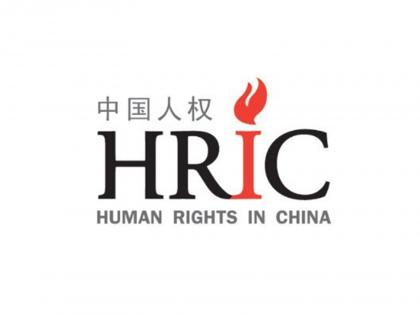China's crackdown deepens: Lawyers, activists, and minorities face escalating restrictions
By ANI | Updated: September 11, 2025 18:15 IST2025-09-11T18:13:38+5:302025-09-11T18:15:05+5:30
New York [US], September 11 : China's human rights landscape continues to draw global concern as lawyers, activists, and ...

China's crackdown deepens: Lawyers, activists, and minorities face escalating restrictions
New York [US], September 11 : China's human rights landscape continues to draw global concern as lawyers, activists, and ethnic minorities face mounting restrictions under the Chinese Communist Party's (CCP) tightening control.
A recent article by acclaimed journalist Jiang Xue charts the trajectory of China's human rights lawyers, who rose to prominence in the early 2000s by defending citizens' rights and challenging politically sensitive cases.
Once a symbol of progress, these lawyers have now been reduced to a heavily monitored and repressed class, emblematic of China's broader crackdown on dissent.
This week, the National People's Congress Standing Committee (NPCSC) is holding its seventeenth session through September 12, reviewing 16 draft laws.
Among the most notable is the proposed Law on Promoting Ethnic Unity and Progress, which authorities claim will "strengthen national cohesion."
Analysts, however, warn that the law could deepen pressure on Tibetans, Uyghurs, and other minority groups to assimilate and adhere to CCP ideology.
The NPCSC is also reviewing amendments to the 2017 Cybersecurity Law proposed by the Cyberspace Administration of China.
International rights watchdog ARTICLE 19 has condemned the changes as a dangerous expansion of China's authoritarian digital governance model, warning it could set troubling precedents worldwide.
Despite state repression, Chinese feminism continues to evolve, shifting away from formal organisations to decentralised support networks. Women's rights activists persist in challenging both entrenched patriarchy and political restrictions, though individual advocacy remains high-risk.
A striking act of resistance emerged from Qi Hong, known as the "Chongqing Protestor," who turned China's surveillance apparatus against itself. Qi used hidden cameras to document police investigating a protest message he left in a hotel room and questioning his mother outside her home, highlighting both personal courage and state overreach.
Tibetans are mourning the death of prominent religious leader Tulku Palden Wangyal (Chogyal Tulku), who died in prison on July 19 after years of alleged torture. Wangyal, revered for his efforts to preserve Tibetan culture, had long been seen by authorities as a threat to centralised control.
Disclaimer: This post has been auto-published from an agency feed without any modifications to the text and has not been reviewed by an editor
Open in app